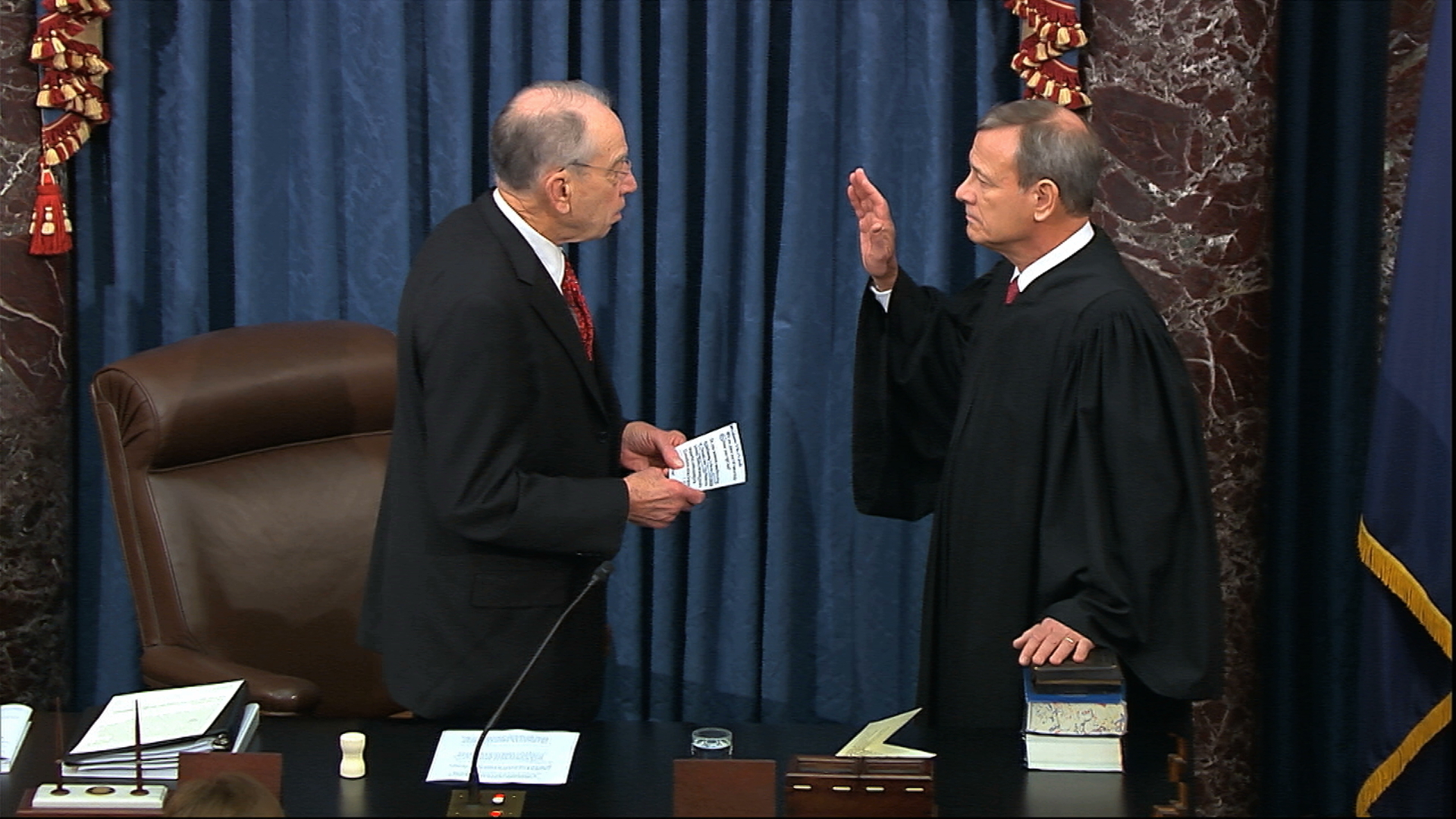The air was crisp in Washington DC Tuesday as a relatively mild season gave way to a deep winter chill. That chill was felt too inside the U.S. Senate Chamber as debate begun in the impeachment trial against President Donald J. Trump.
It's meant to be a solemn task, one of the most important handed to the Senate by the U.S. Constitution. But as with so much in that hallowed document much is left open to interpretation. Some things are certain. All 100 senators will sit as jurors. Uncharacteristically, they will sit in silence, deliberating on the case delivered by two teams of impeachment managers, one for the prosecution, the House of Representatives that impeached the President, and one for the defense, the White House.
The Chief Justice of the Supreme Court will preside over the trial and will deliver the questions posed by Senators to the managers.

President Pro Tempore of the Senate Sen. Chuck Grassley, R-Iowa., swears in Supreme Court Chief Justice John Roberts as the presiding officer for the impeachment trial of President Donald Trump in the Senate at the U.S. Capitol in Washington, Thursday, Jan. 16, 2020.
President Pro Tempore of the Senate Sen. Chuck Grassley, R-Iowa., swears in Supreme Court Chief Justice John Roberts as the presiding officer for the impeachment trial of President Donald Trump in the Senate at the U.S. Capitol in Washington, Thursday, Jan. 16, 2020.
At the end of the trial, the Senators will vote, for only the third time in U.S. history, on whether to remove a sitting U.S. President from office. A two-thirds majority, 67 Senators, is required to vote for removal for it to happen.As for the length of the trial, what evidence will be considered, and whether witnesses will be called, all that is left up to the Senate, and this Senate is controlled by Majority Leader Mitch McConnell, a Republican and political ally of the President.
McConnell raised eyebrows after the U.S. House of Representatives impeached the president by saying he was coordinating with the White House over the trial in the Senate. Even before the outset, McConnell questioned the need for witnesses and has indicated he wants to trial to run quickly and perhaps end it before the U.S. President addresses a joint session of the U.S. Congress in his annual State of The Union speech on February 4, 2020.
Late Monday, McConnell issued his plans for the trial. He envisages both sides delivering their opening arguments over two twelve-hour periods each, that's essentially four days and could have senators sitting in session until 1 am or later. Only then would a vote be held to call witnesses. With Republicans in the majority it would take about four defections to deliver witnesses Democrats want.

It's worth bearing in mind that the House Impeachment proceedings did not hear from many key figures in the U.S. administration about whether President Trump unduly pressured Ukrainian President Volodymyr Zelensky into investigating political rival Joe Biden. As the proceedings got underway Democrats called McConnell's rules a recipe for a cover-up and swore to offer amendments.
The question is whether Washington's deep divisions will distort one of its most solemn and significant duties under the Constitution, the trail and potential removal of a sitting President.